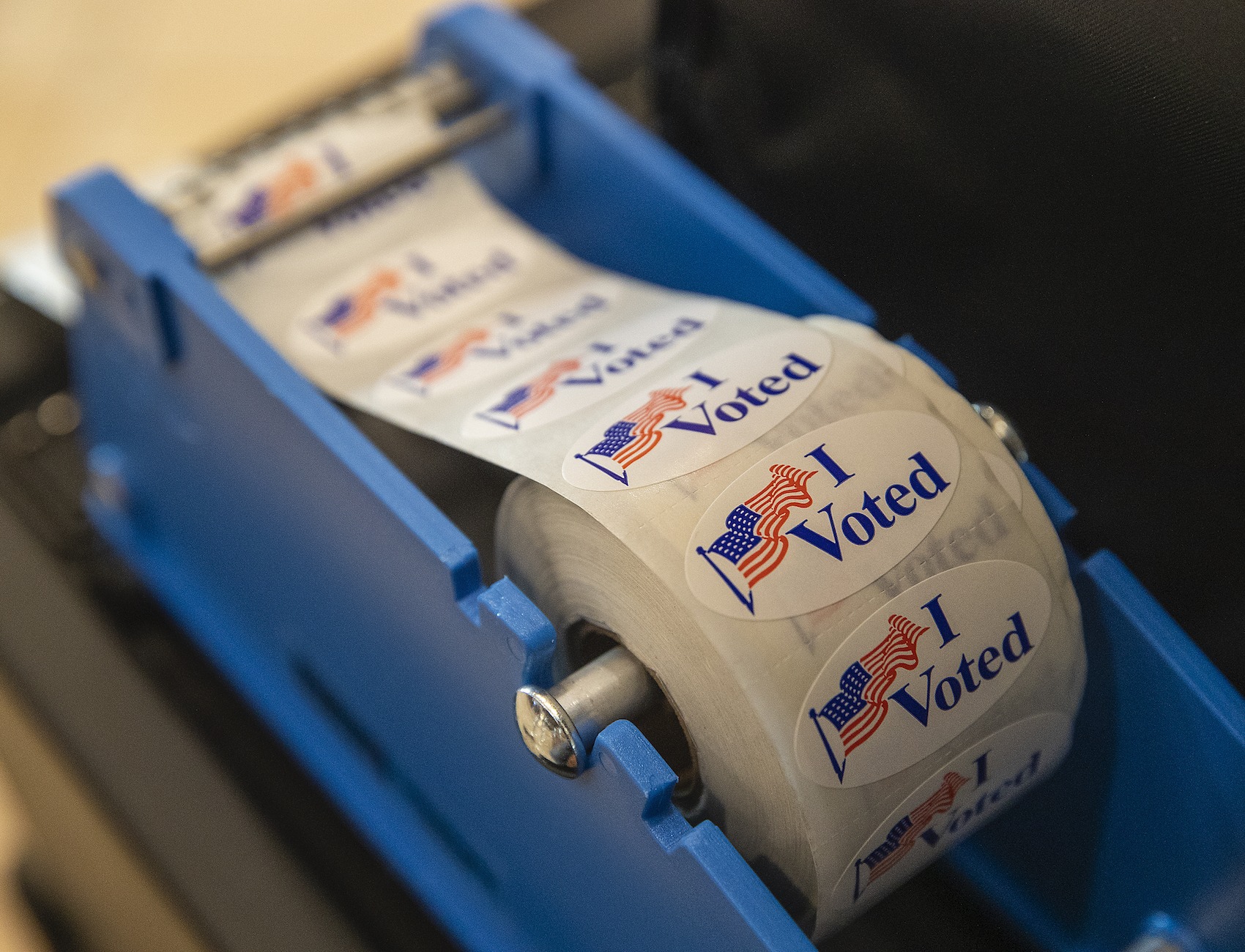California Voters Have An Opportunity To Chip Away At Jim Crow-Era Voting Law
Proposition 17 would allow people with felony convictions to cast ballots while they are on parole.

Since John Windham was released from a California state prison in 2018, he’s become an advocate in his community for criminal justice reform. He started working for Initiate Justice, began his own non-profit to support former offenders returning to society, and now frequently advocates on behalf of people with criminal convictions.
“Do you know how many Zoom meetings I have after you?” the 50-year-old told The Appeal last week. “I’m meeting with the assembly, legislators, congressmen, all these different people to have conversations and dialogues—but I can’t even vote for who I’m sitting down talking to.”
Under California law, people with felony convictions lose their right to vote if they are in prison or on parole. Windham is serving a period of parole of seven years to life, meaning he might never regain his rights.
“It hurts. It’s disappointing,” he said. “I feel as though I’ve committed treason against my country, and they’re stripping me of my citizenship but allowing me to stay, instead of kicking me out.”
But California voters will get an opportunity in November to change that by restoring voting rights to roughly 55,000 people with felony convictions who are currently on parole. Through a ballot measure, Proposition 17, voters will decide whether to amend the state constitution, building on the movement across the country in recent years to extend the vote to people with felony convictions. If voters decide to pass the ballot measure, California would join 18 other states and D.C. in granting any citizen who is not in prison the right to vote.
“This is really the right time to send a message that we have to right the wrongs of our past,” said Shay Franco-Clausen, campaign manager for the Yes on 17 campaign.
According to the campaign, the vast majority of the disenfranchised population on parole is non-white, the product of a legal system in which people of color are more likely to be arrested and convicted of felonies. Like states across the South, California adopted its disenfranchisement policy as part of a new constitution during the Jim Crow period after the Civil War, when white lawmakers sought to keep Black people from gaining political power.
An internal poll by the Yes on 17 campaign recently found that 63 percent of California voters support the measure, which needs a simple majority of the vote to pass. Prop 17 has been endorsed by Governor Gavin Newsom, nearly two dozen members of the assembly, numerous local elected officials and labor unions, community organizations, and criminal justice reform groups.
California’s effort, like others across the country, has been led by directly impacted people like Windham. In 2018, Florida’s “returning citizens” led the initiative to get Amendment 4 on the ballot. The amendment, which gave most people with felony convictions that were not for murder or sexual offenses the right to vote after they have completed their sentence (including any period of parole or probation), passed with almost two-thirds of voters in support. Previously, the state was one of a small number that permanently disenfranchised people convicted of all felonies for life.
Since the amendment passed, however, Republican lawmakers have undermined the voting rights victory by passing legislation, which was recently upheld by a federal appeals court, requiring people with felony convictions to pay off all fines, fees, and restitution associated with their sentence before they can vote. Voting rights advocates claim that the law is a poll tax which could keep an estimated 700,000 people who still owe legal financial obligations from voting.
In California, however, Proposition 17 is not tied to financial obligations, and the state’s Democratic legislature and governor are unlikely to do anything to undermine it if it passes. And there is no campaign or organization working to defeat the measure.
Other states have also recently expanded voting rights to people out of prison on supervision. Last year, New Jersey adopted legislation restoring voting rights to roughly 80,000 people on probation and parole. Earlier in 2019, Nevada similarly restored rights to 77,000 people with felony convictions who are not in prison. And in Colorado, almost 11,500 people on parole regained their rights after the state passed a bill last year.
“We want to be moving in the direction where there are no restrictions for people with felonies, so the next big reform hurdle to get through is to restore the right to vote to people who are in the community on supervision,” said Nicole Porter, director of advocacy at the Sentencing Project. “Given that California describes itself as a progressive state, it should have made this change a long time ago.”
If California’s measure were to pass, the state would still be far from the most progressive state on felony disenfranchisement. Two states, Maine and Vermont, never revoke voting rights and allow people to cast ballots while in prison. Washington, D.C. recently adopted the same practice.
Franco-Clausen said she hopes Proposition 17 is California’s first step toward eliminating disenfranchisement altogether.
“This is just one step in eliminating those Jim Crow laws that disenfranchise brown people at the ballot box, which is very intentional,” she said.
Initiate Justice, which is advocating for Prop 17, also champions citizens voting from prison and has said it will continue to press the issue in California going forward.
A success in Florida in November could also set the stage for more states to chip away at racist disenfranchisement policies, Porter said.
“Hopefully, it would inspire either moderate purple or blue states to expand the franchise to people on supervision, and the next state to do that should be New York, if not others,” she said.
